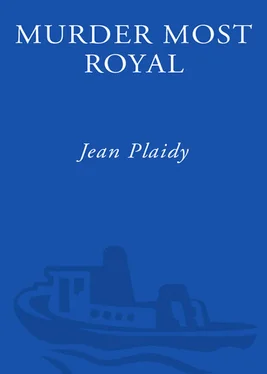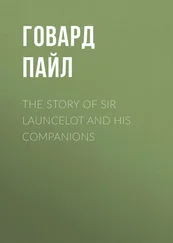Jean Plaidy - Murder Most Royal - The Story of Anne Boleyn and Catherine Howard
Здесь есть возможность читать онлайн «Jean Plaidy - Murder Most Royal - The Story of Anne Boleyn and Catherine Howard» весь текст электронной книги совершенно бесплатно (целиком полную версию без сокращений). В некоторых случаях можно слушать аудио, скачать через торрент в формате fb2 и присутствует краткое содержание. Жанр: Старинная литература, на русском языке. Описание произведения, (предисловие) а так же отзывы посетителей доступны на портале библиотеки ЛибКат.
- Название:Murder Most Royal: The Story of Anne Boleyn and Catherine Howard
- Автор:
- Жанр:
- Год:неизвестен
- ISBN:нет данных
- Рейтинг книги:3 / 5. Голосов: 1
-
Избранное:Добавить в избранное
- Отзывы:
-
Ваша оценка:
- 60
- 1
- 2
- 3
- 4
- 5
Murder Most Royal: The Story of Anne Boleyn and Catherine Howard: краткое содержание, описание и аннотация
Предлагаем к чтению аннотацию, описание, краткое содержание или предисловие (зависит от того, что написал сам автор книги «Murder Most Royal: The Story of Anne Boleyn and Catherine Howard»). Если вы не нашли необходимую информацию о книге — напишите в комментариях, мы постараемся отыскать её.
Murder Most Royal: The Story of Anne Boleyn and Catherine Howard — читать онлайн бесплатно полную книгу (весь текст) целиком
Ниже представлен текст книги, разбитый по страницам. Система сохранения места последней прочитанной страницы, позволяет с удобством читать онлайн бесплатно книгу «Murder Most Royal: The Story of Anne Boleyn and Catherine Howard», без необходимости каждый раз заново искать на чём Вы остановились. Поставьте закладку, и сможете в любой момент перейти на страницу, на которой закончили чтение.
Интервал:
Закладка:
He lay listening to her but paying little attention, being much accustomed to her prayers, thinking of a girl’s slender body in scarlet and gold, a girl with flowing hair and a clever, pointed face, and the loveliest dark eyes in the court. Anne, he thought, you witch! I vow you hold off to provoke me....Pleasant thoughts. She was holding off to plague him. But enough, girl. How many years since I saw you in your father’s garden, and wanted you then! What do you want, girl? Ask for it; you shall have it, but love me, love me, for indeed I love you truly.
The Queen had stopped praying.
“They give themselves such airs, these women you elevate with your desires.”
“Come,” he said, gratified, for did not she give herself airs, and was it then because of his preference for her? “It is natural, is it not, that those noticed by the King should give themselves airs?”
“There are so many,” she said faintly.
Ah! he thought, there would be but one, Anne, and you that one!
The Queen repeated: “I would fain Your Majesty controlled himself.”
Oh, her incessant chatter wearied him. He wished to be left alone with his dream of her whose presence enchanted him.
He said cruelly: “Madam, you yourself are little inducement to a man to forsake his mistresses.”
She quivered; he felt that, though the width of the vast bed separated them.
“I am no longer young,” she said. “Am I to blame because our children died?” He was silent; she was trembling violently now. “I have heard the whispering that goes on in the court. I have heard of this they call The King’s Secret Matter.”
Now she had dragged his mind from the sensuous dream which soothed his body. So the whispering had reached her ears, had it! Well, assuredly it must reach them some time; but he would rather the matter had been put before her in a more dignified manner.
She said appealingly: “Henry, you do not deny it?”
He heaved his great body up in the bed. “Katharine,” he said, “you know well that for myself I would not replace you; but a king’s life does not belong to him but to his kingdom. And Katharine, serious doubts have arisen in my mind, not lately but for some time past; and well would I have suppressed them had my conscience let me. I would have you know, Katharine, that when our daughter’s marriage with the Duke of Orleans was proposed, the French ambassador raised the question of her legitimacy.”
“Legitimacy!” cried Katharine, raising herself. “What meant he? My lord, I hope you reproved him most sternly!”
“Ah! That I did! And sorely grieved was I.” The King felt happier now; he was no longer the erring husband being reproved by his too faithful wife; he was the King, who put his country first, before all personal claims; and in this matter, he could tell himself, the man must take second place to the King. He could, lying in this bed with a woman whose pious ways, whose shapeless body had long since ceased to move him except with repugnance, assure himself that the need to remain married to her was removed.
He had married Katharine because there had been England’s need to form a deep friendship with Spain, because England had then been weak, and across a narrow strip of channel lay mighty France, a perennial enemy. In those days of early marriage it had been a hope of Henry’s to conquer France once more; with Calais still in English hands, this had not seemed an impossibility; he had hoped that with the Emperor’s help this might be effected, but since the undignified affair at Pavia, Charles was hardly likely to link himself with English allies; thus was the need for friendship with Spain removed; Wolsey’s schemes had been called to a halt; the new allies were the French. Therefore, what could be better for England than to dissolve the Spanish marriage! And in its place...But no matter, dissolve the Spanish marriage since it could no longer help England.
These were minor matters compared with the great issue which disturbed his conscience. God bless the Bishop of Tarbes, that ambassador who had the tact at this moment to question the legitimacy of the Princess Mary.
“’Twere a matter to make a war with France,” said Katharine hotly. “My daughter a bastard! Your daughter...”
“These matters are not for women’s wits,” said the King. “Wars are not made on such flimsy pretexts.”
“Flimsy!” she cried, her voice sharp with fear. Katharine was no fool; to the suppers given in her apartments there came the most learned of men, the more serious courtiers, men such as Sir Thomas More; she was more fastidious than the English ladies, and she had never tried to learn the English ways. She did not enjoy the blood sports so beloved by her husband. At first he had protested when she had told him that Spanish ladies did not follow the hawk and hound. But that was years ago; he thought it well now that she did not attend sporting displays, since he had no wish for her company. But there was that in her which must make him respect her, her calm dignity, her religious faith; and even now, when this great catastrophe threatened her, she had not shown publicly—apart from her melancholy, which was natural to her—that she knew what was afoot. But she was tenacious; she would fight, he knew, if not for herself for her daughter. Her piety would tell her that she fought for Henry as well as for herself, that divorce was wrong in the eyes of the Church, and she would fight with all her quiet persistence against it.
“Katharine,” said the King, “dost thou remember thy Bible?” He began to quote a passage from Leviticus wherein it was said that for a man to take his brother’s wife was an unclean thing, for thus had he uncovered his brother’s nakedness, they should therefore be childless. He repeated the last sentence.
“Thou knowest I was never truly thy brother’s wife.”
“It is a matter which perplexes me greatly.”
“You would say you believe me not?”
“I know not what to say. Your hopes of an heir have been blighted; it looks like Providence. Is it natural that our sons should die one after the other? Is it natural that our efforts should be frustrated?”
“Not all,” she said plaintively.
“A daughter!” he retorted contemptuously.
“She is a worthy girl....”
“Bah! A girl! What good are women on the throne of England! She is no answer to our prayers, Katharine. Sons have been denied to us. The fault does not lie in me...”
Tears were in the Queen’s eyes. She would hate this man if most of her natural instincts had not been suppressed by piety; she knew not now whether she hated or loved; she only knew she must do what was right according to her religion. She must not hate the King; she must not hate her husband; for therein was mortal sin. So all through the years when he had slighted her, humiliated her, shown utter carelessness of the hurt his lack of faith might cause her, she had assured herself that she loved him. Small wonder that he found her colorless; small wonder that now he compared this woman of forty-one with a laughing, willful girl of nineteen years! He was thirty-five; surely a good age for a man—his prime. But he must be watchful of the years, being a king who had so far failed to give his kingdom an heir.
A short while ago he had brought his illegitimate son to court, and heaped honors upon him to the deep humiliation of the Queen, whose fears were then chiefly for her daughter. This huge man cared nothing for her, little for her daughter; he only cared that he should get what he wanted, and that the world should think that in procuring his own needs he did it not for his own, but for duty’s sake.
When he said that the fault was not with him, he meant she had lied when she declared herself a virgin; he meant that she had lived with his brother as his wife. She began to weep as she prayed for strength to fight this powerful man and his evil intentions to displace her daughter from the throne with a bastard he might beget through one whom he would call his wife.
Читать дальшеИнтервал:
Закладка:
Похожие книги на «Murder Most Royal: The Story of Anne Boleyn and Catherine Howard»
Представляем Вашему вниманию похожие книги на «Murder Most Royal: The Story of Anne Boleyn and Catherine Howard» списком для выбора. Мы отобрали схожую по названию и смыслу литературу в надежде предоставить читателям больше вариантов отыскать новые, интересные, ещё непрочитанные произведения.
Обсуждение, отзывы о книге «Murder Most Royal: The Story of Anne Boleyn and Catherine Howard» и просто собственные мнения читателей. Оставьте ваши комментарии, напишите, что Вы думаете о произведении, его смысле или главных героях. Укажите что конкретно понравилось, а что нет, и почему Вы так считаете.












